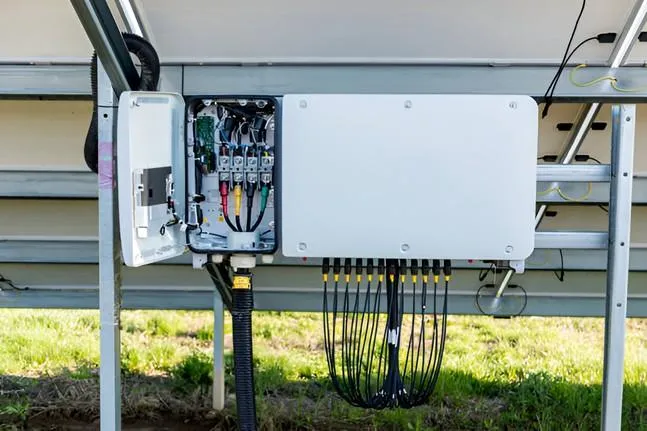
Do You Really Need a Solar Inverter?
When investing in solar power, many homeowners focus on panels. Yet the solar inverter is the true heart of your system. Without it, the energy produced on your roof cannot power your home. At Ramselec Solar, we know that the right inverter is as vital as the panels themselves, it’s what ensures efficiency, safety, and reliability in every system we install.
Table of Contents
Why Is a Solar Inverter Essential?
Optimisation of Power Generation
What Happens if You Don’t Have an Inverter?
Key Takeaways
A solar inverter is essential for converting DC to usable AC power
Modern inverters provide monitoring, safety, and efficiency
Different inverter types suit residential, commercial, and hybrid systems
Without an inverter, panels cannot function for household use
Ramselec Solar installs Tier One inverters designed for long-term reliability
What is a Solar Inverter?
Before we get into whether or not you need one, let’s break down exactly what a solar inverter does. Simply put, a solar inverter converts the direct current (DC) electricity generated by your solar panels into alternating current (AC) electricity, which is the type of electricity used by most homes and businesses.
Solar panels produce DC power, which is fine for charging batteries or certain specialised devices, but it’s not compatible with the standard electrical grid or most home appliances. AC power, on the other hand, is the standard used for powering everything from your lights to your air conditioner. Without an inverter, the energy generated by your solar panels would be virtually useless in your home or business.
Types of Solar Inverters
If you do decide to go ahead with an inverter, it’s good to know that there are different types, including:
String Inverters: The most common type of inverter, where multiple panels are connected to a single unit. This is an efficient and cost-effective option for most homeowners.
Microinverters: A more advanced option where each panel has its own inverter. This allows for more flexibility and better performance, particularly in situations where shading or panel mismatch is an issue.
Hybrid Inverters: These are designed for systems with battery storage, allowing you to store excess energy generated by your panels for use when the sun isn’t shining.
Central Inverters: Ideal for large-scale systems, central inverters manage multiple panels and convert DC to AC power efficiently. They are cost-effective for commercial or industrial installations but less flexible in shading conditions.
Why Is a Solar Inverter Essential?
Conversion of DC to AC Power
Solar panels produce direct current (DC) electricity, but your home uses alternating current (AC). An inverter converts the DC power from your panels into AC, making it usable for household appliances like lights, fridges, and TVs.
Without this conversion, the power generated by your solar panels wouldn’t be compatible with your home’s electrical system, leaving it useless for daily tasks.
Grid Connection
In Australia, many solar systems are connected to the electricity grid, especially for selling excess energy through schemes like the feed-in tariff. Since the grid operates on AC power, the inverter is crucial for converting the DC power into AC to feed into the grid.
The inverter also allows you to send surplus energy back to the grid, benefiting others and potentially earning credits. Without an inverter, exporting energy would be impossible.
Optimisation of Power Generation
Modern inverters optimise solar system performance. They often have technology that maximises the energy output of each panel by adjusting power flow based on performance. This helps ensure efficient energy conversion.
Systems with microinverters optimise each panel individually. This means shading or underperformance on one panel won’t impact the entire system’s output, unlike traditional systems, where one faulty panel can reduce overall performance.
Safety Features
Solar inverters are equipped with safety features that protect both your home and the system. Anti-islanding protection ensures that during power outages, the inverter disconnects your system from the grid, preventing potential harm to utility workers.
Additionally, many inverters include overload protection. If the system generates more power than the inverter can handle, it automatically shuts down, preventing damage and ensuring safe operation for your home and the grid.
What Happens if You Don’t Have an Inverter?
Without an inverter, your solar system won’t function properly. The energy stays in DC form and can't be used in your home or sent to the grid.
Key Consequences:
Unusable Solar Energy: DC energy cannot power your home or be exported to the grid.
No Energy Optimisation: Missing out on optimising your system’s performance.
No Smart Monitoring: Without an inverter, smart features like monitoring and efficiency tracking are unavailable.
Lower Efficiency: Overall system efficiency and return on investment decrease.
Can You Skip the Inverter in Specific Scenarios?
There are some niche scenarios where you might not need a solar inverter, but these are rare and often come with trade-offs.
Off-Grid Systems: If you’re completely off the grid and using solar batteries to store your solar power, you may still need a form of inverter, but it could be different from the typical grid-tied inverter. Off-grid systems often use a battery inverter/charger combo unit, which combines the functions of an inverter and a charger for storing energy in batteries.
DC-Powered Devices: In very specific circumstances where you are running DC-powered appliances or systems, such as certain 12V or 24V systems, you might not need an inverter. However, this is more the exception than the rule and typically applies to small, specialised setups.
Conclusion
A solar system without an inverter is incomplete. It is the component that transforms sunlight into usable energy, protects your property, and ensures efficiency. At Ramselec Solar, we provide expert guidance on selecting the right inverter for your home or business, backed by quality solar equipment and trusted installation. Contact us today for a tailored consultation and discover the right solar solution for your energy needs.
FAQs:
Can solar panels work without an inverter?
No. Panels generate DC electricity, which is not compatible with household appliances. An inverter is required.
How long does a solar inverter last?
On average, 10–15 years, depending on quality and maintenance.
What happens if my inverter stops working?
Your solar panels will still generate power, but it cannot be used in your home until the inverter is repaired or replaced.
Which type of inverter is best?
It depends on your property. Microinverters are efficient for shaded roofs, while string inverters suit open areas. Hybrid inverters are ideal for homes with batteries.
Are inverters covered by warranty?
Yes. Most inverters include warranties ranging from 10–15 years. At Ramselec Solar, we only install trusted brands with strong support.
Can I add a battery to my system later?
Yes. With a hybrid inverter, you can integrate battery storage now or in the future for flexibility.







